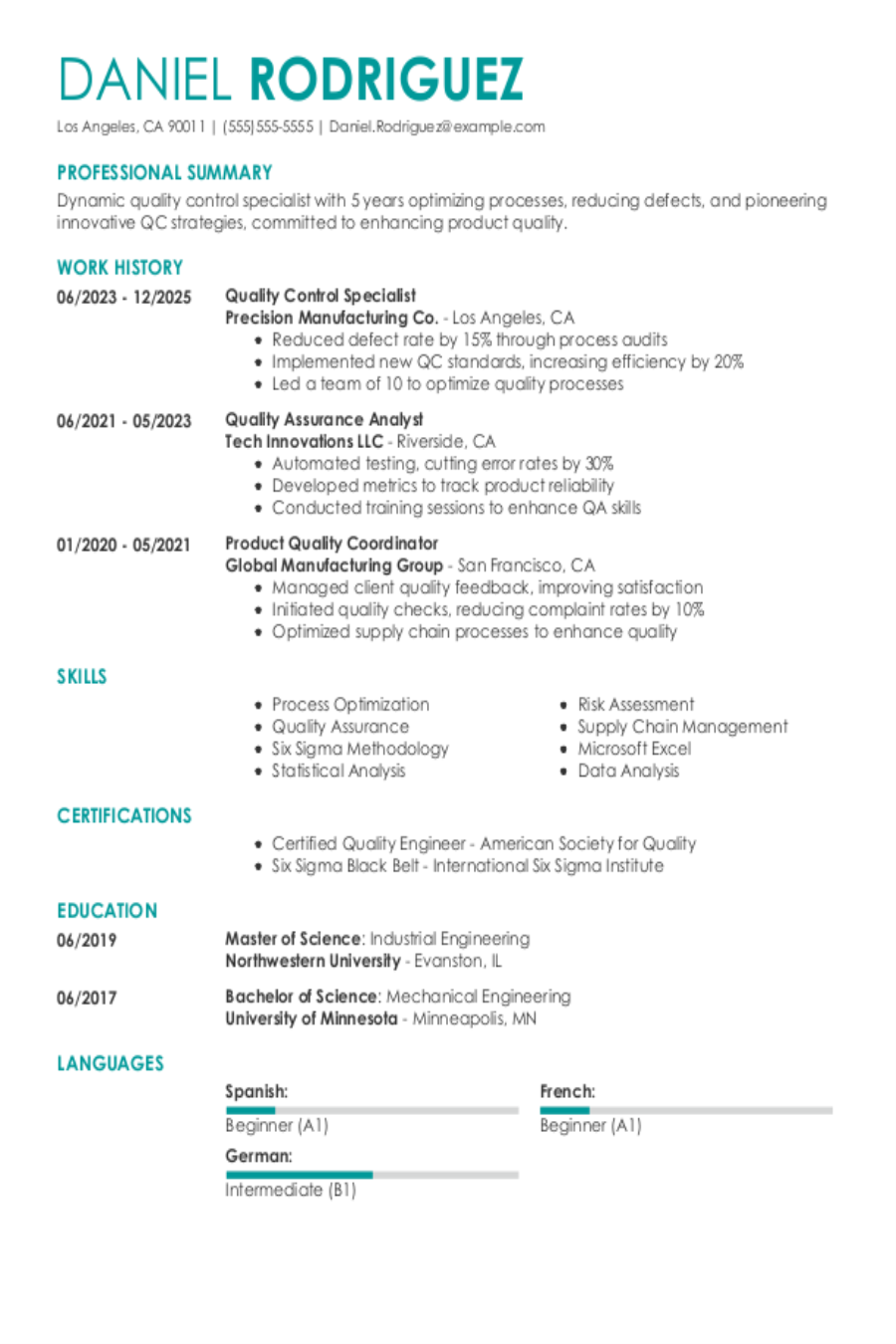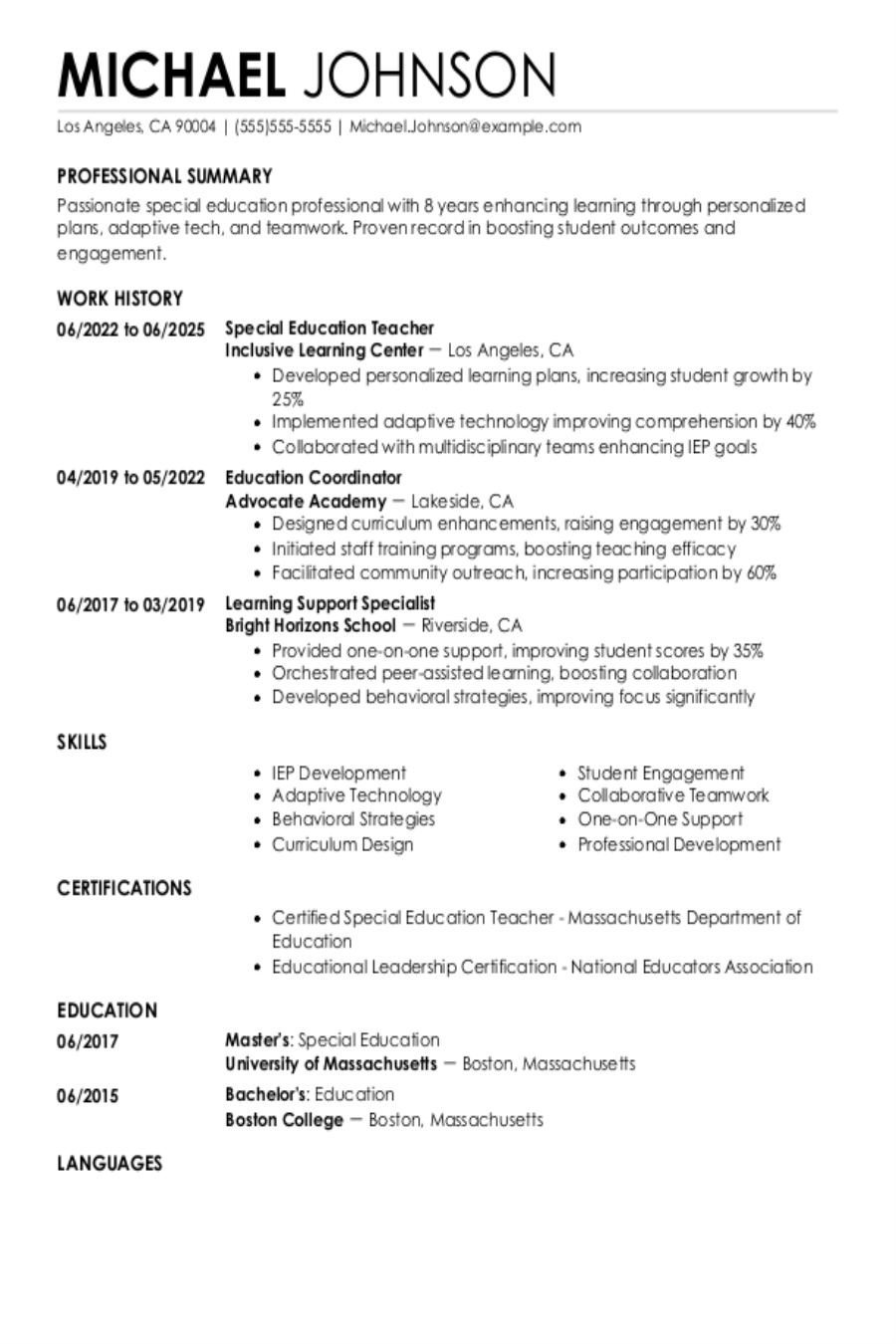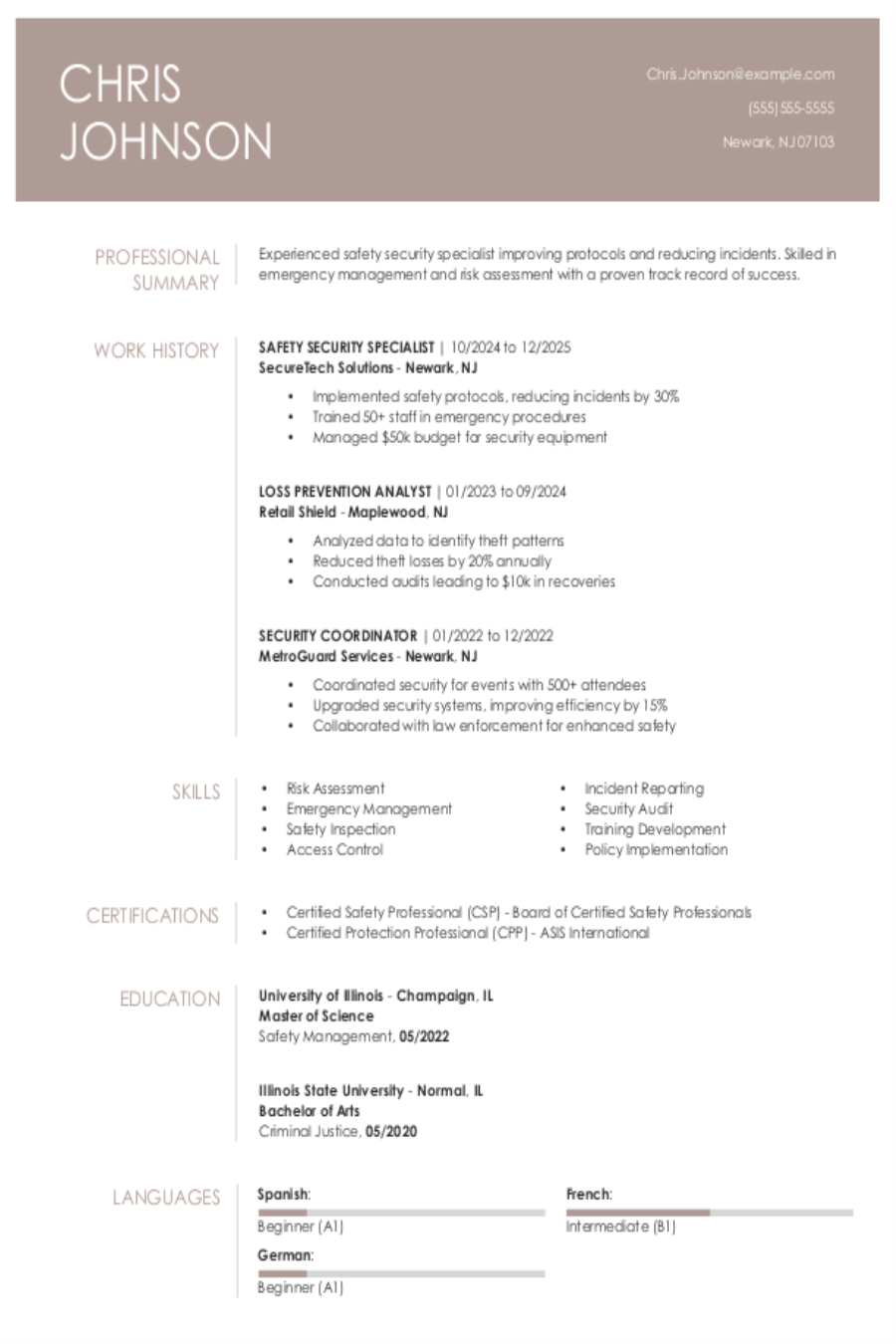Table of contents
Imagine this: Your company’s event coordinator fell ill mere days before you’re set to host a major conference.
As an executive assistant with strong administrative skills, you could step in at the last minute. Your skill set would allow you to coordinate with vendors, rearrange schedules and manage last-minute changes.
This story shows the power of administrative skills.
Want to strengthen those skills in yourself? This guide will help you.
Here’s what we’ll cover:
- Answering the question, “What are administrative skills?”
- Specific examples of administrative skills.
- Step-by-step guide on adding these to your resume.
- Advice on developing your administrative skills.
- Additional resources for other skill sets.
Are you updating your resume? If so, have you thought about using a AI resume builder? These tools help you craft your resume efficiently. They also provide a wealth of administrative skills examples that you can easily add to your resume with just a click.
What are administrative skills?
Administrative skills are the abilities and competencies related to running an organization efficiently and effectively. Great administrators are known for their ability to manage multiple tasks, prioritize responsibilities and maintain organization in dynamic environments.
You might be wondering why administrative skills are so important, especially with AI on the horizon. The thing is, while AI can automate many processes, human oversight, strategic thinking and interpersonal communication are irreplaceable aspects of administration that ensure smooth operations and compliance.
Of course, when you work as an administrative assistant, these skills are important, but they’re critical in a range of industries, from healthcare and education to information technology and banking.
Up next, we’ll show you some of the top examples of administrative skills you can add to your resume today.
20+ administrative skills [examples to list on your resume]
Administration skills come in many different varieties. There are soft skills, like communication and problem-solving, and hard skills, such as data entry and schedule management. All of these are administrative skills.
Some skills you slowly build up over time and life experiences while others are more technical, possibly requiring formal training sessions to get a professional certification.
You could use some examples, right? Let’s go.
Communication
No matter what field you work in, communication skills make a big difference. Administrators are the happy connectors of the office world, bridging departments and ensuring that all parts of the company communicate effectively. Here are some examples:
- Email management tools like Outlook and Gmail.
- Instant messaging platforms such as Slack and Microsoft Teams.
- Video conferencing software like Zoom and Skype.
- Customer relationship management (CRM) software.
Organization
Another skill administrators use pretty much every day is organizational skills. These skills help keep the office running smoothly and ensure that everyone has the resources they need when they need them. Here are some technology skills related to organization:
- Digital filing systems like Google Drive or Dropbox.
- Calendar management tools such as Google Calendar and Microsoft Outlook.
- Project management software like Monday.com.
- Document collaboration tools such as Google Docs and Microsoft Word Online.
Technology
Organizations have changed. We’re no longer putting pencil to paper when we’re making a guest list, and administrative tasks have largely moved online. Here are the technology skills that are especially important in administrative roles:
- Proficiency in office suites such as Microsoft Office and Google Workspace.
- Database management using software like Access or SQL.
- Basic understanding of IT troubleshooting.
- Use of accounting software like QuickBooks for managing budgets.
Problem-solving
Getting stuff done is the name of the game, which requires exceptional problem-solving abilities to navigate day-to-day challenges and unforeseen complications. Strong problem-solving skills help administrators effectively address issues before they escalate. Here are a few:
- Prioritizing urgent tasks and delegating effectively.
- Developing contingency plans for common workflow disruptions.
- Analyzing workflow processes to identify areas for efficiency improvements.
- Conflict resolution techniques to handle disputes between staff or with clients.
Resource management
Effective resource management ensures that all parts of an organization have the tools and materials to function efficiently. Administrators are key in monitoring and allocating resources wisely to prevent waste and maximize productivity. Skills related to resource management include:
- Inventory tracking and supply ordering.
- Budget management to keep spending within company guidelines.
- Scheduling resources such as meeting rooms and equipment.
- Energy and utility management to reduce costs.
Time management
Efficient time management is essential for administrators who often juggle multiple tasks and deadlines simultaneously. Mastering this skill ensures that all tasks are completed on schedule and that no part of the organization suffers from delays or oversight. Here are some skills and practices related to time management:
- Use of scheduling software such as Google Calendar and Microsoft Outlook.
- Task prioritization tools like Trello and Asana.
- Automated reminder systems to keep track of deadlines and follow-up tasks.
- Pomodoro timers and other productivity apps like Focus Keeper.
- Efficient multitasking by leveraging technology like dual monitors.
Adding administrative skills to your resume [step-by-step guide]
Your skills can open doors for you when you’re trying to land a job. To get your foot in the door, you need to represent your expertise effectively on your resume.
You can add administrative skills to your resume in just a few steps. Let’s break it down one by one.
Bold the skills in the job listing
If you take away only one thing from this section, let it be this: You should customize your resume for every job.
The days of the one-size-fits-all resume are long gone. Today, most employers use applicant tracking systems (ATS) that filter for specific keywords. You may be out of luck if your resume doesn’t include those keywords.
The good news? You can game this system by reading the job description closely and highlighting or bolding the skills listed throughout.
Here’s an example of a job description with the administrative skills in bold:
- Coordinate and schedule meetings and appointments to optimize workflow.
- Manage email and calendar systems to ensure smooth day-to-day engagements.
- Prepare reports and presentations with statistical data, as assigned.
- Operate office equipment such as fax machines, copiers and phone systems, and use computers for spreadsheet, word processing, database management and other applications.
- Handle confidential documents ensuring they remain secure.
In the second step, we’ll show you where to place the skills you’ve collected.
By the way, go beyond the job listing and research the company. Look at their website, recent news articles and their social media profiles. Understanding the company’s culture, values and recent activities can help you every step of the way.
Add a skills section
Your skills section is an important block in the Jenga tower that is your resume.
Take the skills you bolded in the job listing and use them as the basis for your skills section. Here’s an example of what that would look like in practice, with the relevant skills in bold:
- Calendar management
- Email handling
- Social media management
- Report preparation
- Spreadsheet creation
- Critical thinking
- Confidentiality
By the way, you can always include a second skills section that is more tailored to a specific skill. For example, sections titled technical skills and computer skills can focus exclusively on those areas if you want to highlight particular proficiencies that are relevant to the job.
Consider using a skills-based resume, also known as a functional resume, if you’re changing industries or just starting your career. This format allows you to place extra emphasis on your skills.
Pepper skills throughout the rest of your resume
With the skills section out of the way, take a gander at your other resume sections. Are administrative skills well represented in your professional summary or objective statement? How about in your education section?
Most importantly, make sure your work history is chock full of the administrative skills you found in the job ad. Here’s what that would look like (skills are in bold):
Administrative Assistant
XYZ Corp, 2018 – May 2024t
- Coordinated and scheduled over 300+ corporate events and meetings.
- Developed efficient email and calendar management systems that reduced scheduling errors by 40%.
- Prepared detailed reports and presentations to support executive decision-making processes.
Okay, next we will share some tips on how to develop this skill set.
How to develop your administrative skills
Like any skill set, administrative skills are always changing. If your skills are locked down today, they may be quite different in a couple of years.
Here are some of the best ways to improve your administrative skills:
- Online learning platforms: Take a course online in your spare time. LinkedIn Learning, for example, offers courses such as Administrative Professional Foundations and Time Management Fundamentals.
- On-the-job training: Seek opportunities within your current role to take on additional responsibilities that require administrative skills. For instance, volunteer to coordinate a team event or manage a new project.
- Workshops and seminars: Attend events and seminars that focus on enhancing administrative skills. These are often hosted by professional organizations or local business groups and cover topics like effective communication.
- Networking: Join professional organizations like the International Association of Administrative Professionals (IAAP). Networking can provide insights into best practices and new trends in the field of administration.
- Mentorship: Find a mentor who excels in administrative roles. A mentor can provide personalized advice, share experiences and help navigate career paths in administrative functions.
We’ll wrap up with a few additional resources and key takeaways to help you on your career journey.
More skills resources
Haven’t found what you’re looking for? Maybe one of our other skills guides can help:
Administrative skills — key takeaways
Administrative skills are important in a range of professions
From managing schedules and coordinating meetings to handling correspondence and preparing reports, these skills form the backbone of most organizations.
There’s a variety of skills contained within administrative skills
This skill set includes technical abilities, like proficiency in spreadsheet and database management, and soft skills, such as effective communication, problem-solving and time management.
Administration skills can help you advance your career
Employers will see you as a more valuable contributor by demonstrating your ability to manage tasks efficiently and lead projects.
You should keep your administrative skills fresh
Continuously seek opportunities for professional development through workshops, online courses and certification programs, and stay updated with the latest technological tools.
Was this information helpful? Let us know!
Don is a Certified Professional Resume Writer (CPRW) with more than 10 years’ experience creating digital content, including four years helping job seekers develop their careers. He holds an M.S. in Journalism from Northwestern University.
More resources

Still in the Game: 9 in 10 Older Workers Are Upskilling to Stay Competitive
The idea that older workers are resistant to change doesn t ho...

The AI Boss Effect: 97% of Workers Have Asked ChatGPT for Advice Instead of Their Manager
Resume Now s latest report explores how AI is replacing manage...

37 Unique Skills to Put on Your Resume
Trying to avoid the skills you see pop up on resumes repeatedl...

Quality Control Resume: Examples & Templates
Build & download your Quality Control resume in a few simple s...

Special Education Resume: Examples & Templates
Build & download your Special Education resume in a few simple...

Your Guide to Getting a Job in the Safety and Security Industry
Build & download your Safety Security resume in a few simple s...
